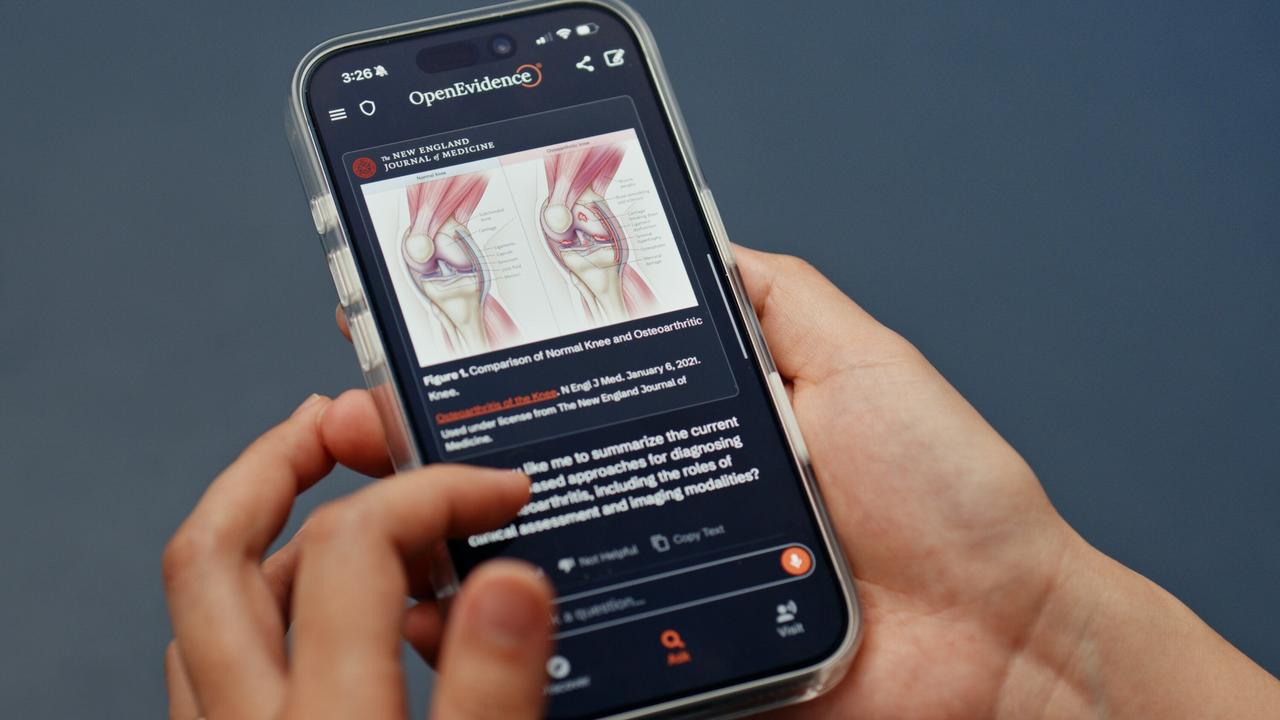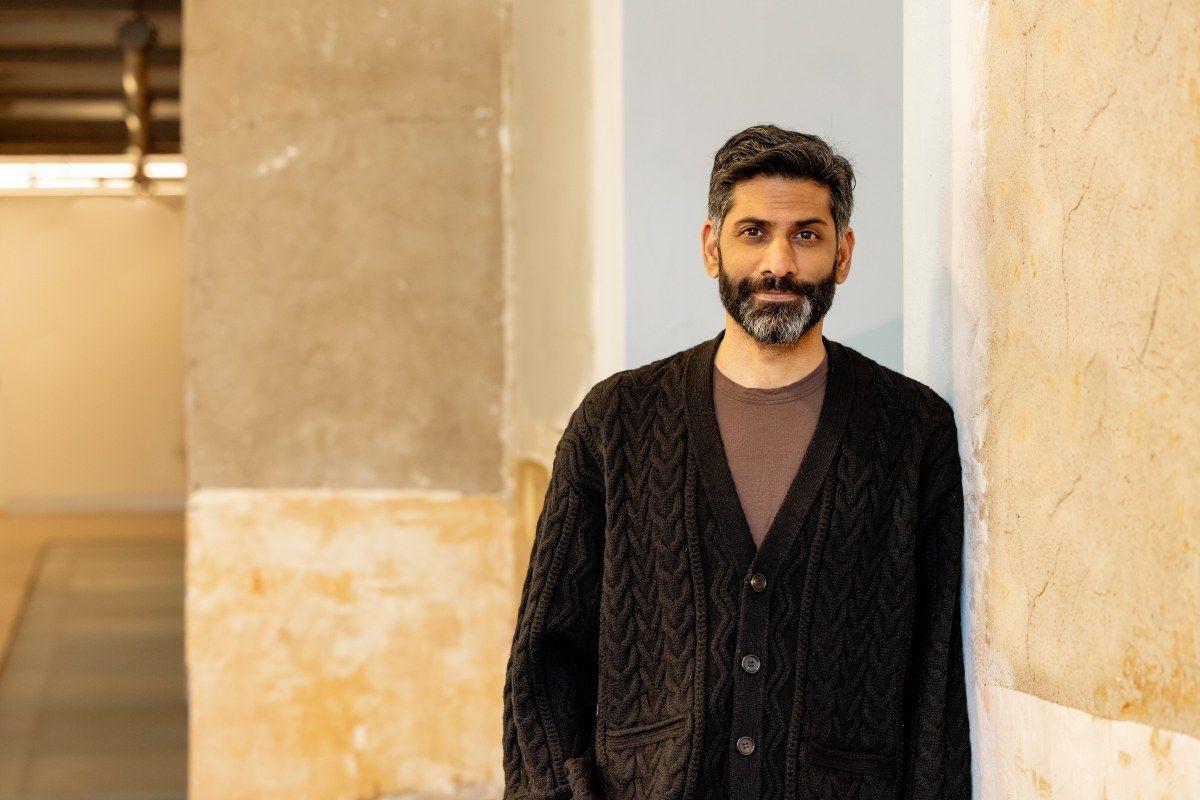OpenEvidence Secures $200M Funding, Revolutionizing AI in Healthcare
3 Sources
3 Sources
[1]
OpenEvidence, the ChatGPT for doctors, raises $200M at $6B valuation | TechCrunch
OpenEvidence, a tool that doctors and nurses have likened to ChatGPT for medicine, plans to announce a $200 million raise at a $6 billion valuation, The New York Times reports. The fresh funds come three months after the startup raised a $210 million round at a $3.5 billion valuation, a testament to the intense investor interest in industry-specific AI applications. Trained on medical journals from JAMA and the New England Journal of Medicine, the OpenEvidence platform helps users quickly get answers to existing medical knowledge to help treat patients. Verified medical professionals can access OpenEvidence's tool, which is supported by advertising, for free. OpenEvidence has grown quickly since its founding in 2022. Its number of clinical consultations per month has nearly doubled to 15 million since July, per the Times. The round was led by Google Ventures, with participation from Sequoia Capital, Kleiner Perkins, Blackstone, Thrive Capital, Coatue Management, Bond, and Craft. TechCrunch has reached out to OpenEvidence for comment.
[2]
OpenEvidence Raises $200 Million for a ChatGPT for Medicine
Much of the enthusiasm in the artificial intelligence boom has flowed to makers of gargantuan models like OpenAI and Anthropic. But several more companies are also drawing the attention -- and money -- of investors and users alike to more specialized applications. Among these is OpenEvidence, whose software has been likened to a ChatGPT for doctors. On Monday, it plans to announce that it has raised $200 million at a $6 billion valuation. To many investors and technology executives, the promise of A.I. stretches beyond large-language models to smaller start-ups that cater to specific niches as well. These companies, such as the maker of the coding tool Cursor, have managed to quickly amass huge user bases with the promise of overhauling entire industries. Over just three years, OpenEvidence has grown to become a popular tool among doctors, nurses and other medical practitioners. It now supports about 15 million clinical consultations a month, said Daniel Nadler, one of its founders. That is up from 8.5 million consultations a month in July. The company was started in 2022 by Mr. Nadler, who previously founded an A.I. start-up that was sold to S&P Global for $550 million, and Zachary Ziegler with the idea of helping medical professionals more quickly reach diagnoses. Its chatbot is trained on medical journals from JAMA and the New England Journal of Medicine -- "blue-chip stuff," according to Mr. Nadler -- to help users quickly draw on existing medical knowledge to treat patients. (That setup, as well as programming that is meant to refuse an answer that the system has low confidence in, helps reduce the likelihood that OpenEvidence would "hallucinate" a wrong answer, Mr. Nadler added.) OpenEvidence, whose headquarters are in Miami, was engineered for rapid and widespread adoption: The company's tool is free to use for verified medical professionals and is supported by advertising. Mr. Nadler said that setup, rather than a more traditional model like charging individual health systems, has helped it expand to more than 10,000 medical centers. "It's reaching verb-like status," Sangeen Zeb, a partner at Google Ventures, the lead investor in the round, said in an interview. (OpenEvidence was one of several A.I. start-ups recently cited by Jensen Huang, the chief executive of Nvidia, as worth watching.) In recent weeks, many investors have again raised concerns about whether the A.I. boom has become overheated, given how much money has flowed into the industry and how quickly valuations have skyrocketed. OpenEvidence has benefited from investor interest that has translated into a flood of money: It raised a $210 million round in July at a $3.5 billion valuation, and has now collected about a half-billion dollars in funding. But to its backers, its rapid growth was worth paying up to buy a stake in. Mr. Zeb said that the round essentially came together over a matter of days this summer. After a presentation with Google that drew the attention of ad buyers, Google Ventures raised the idea of a new fund-raising round with Mr. Nadler on a Thursday. It ironed out many of the details by the Sunday and signed documents days later. Other investors in the round included Sequoia Capital, Kleiner Perkins, Blackstone, Thrive Capital, Coatue Management, BOND and Craft. Mr. Nadler said that OpenEvidence would use the money for additional computing and A.I. training resources for its models, as well as to increase its investment in marketing. But he said the company's growth trajectory justified its rapid fund-raising pace, since it was adding about 60,000 to 70,000 users a month. He said that the company was halfway to hitting the $100 million in advertising revenue that it had expected to reach next year, after having started commercializing its app about 90 days ago. And while some skeptics have raised the prospect of competition, Mr. Nadler said that OpenEvidence had collected more than 100 million clinical consultations, valuable data for its models to be trained on. "No one else in the world has that data," he said.
[3]
Medical search engine startup OpenEvidence closes $200M investment led by GV - SiliconANGLE
Medical search engine startup OpenEvidence closes $200M investment led by GV OpenEvidence Inc., the developer of an artificial intelligence search engine for doctors, today announced that it has closed a $200 million investment. The Series C round was led by Alphabet Inc.'s GV fund. Sequoia, Kleiner Perkins, Blackstone, Thrive Capital, Coatue, Bond and Craft participated as well. OpenEvidence is now worth $6.5 million, up from $3.5 billion following another GV-led funding round in July. OpenEvidence's namesake AI search engine enables doctors to browse medical literature through a ChatGPT-like interface. It can generate multi-paragraph natural language answers to user questions. In addition, OpenEvidence displays citations that can be used to find the research papers from which it retrieved information. The platform aggregates papers from the JAMA Network, a consortium of scientific publications published by the American Medical Association, the New England Journal of Medicine and other sources. Medical professionals can use the service to support care delivery. A doctor could, for example, ask OpenEvidence to list recommended lab tests and treatment options. The service also lends itself to researching broader topics. It can summarize new research papers and provide explainers about emerging medical technologies. In medical schools, lecturers can use OpenEvidence to draft exam questions. The service supports multiple question formats and surfaces research papers with relevant information. In August, OpenEvidence became the first AI platform to achieve a perfect score on the U.S. Medical Licensing Examination. The second highest score was earned by GPT-5, which answered 97% of the questions correctly. OpenEvidence disclosed on the milestone that more than 75,000 U.S. clinicians sign up for its platform per month. The company's software is already used by about 40% of the physicians in the U.S. They run 16.5 million searches per month, up from 10 million in June. OpenEvidence provides its platform for free to medical professionals and makes money through advertising. According to Forbes, OpenEvidence expects its annualized recurring revenue to grow from $50 million in July to $100 million next year. In August, the company expanded its focus beyond AI search by launching a new tool called Visits. It automatically generates medical notes from patient conversations. Doctors can also use Visits to search medical documentation for specific details and enrich it with external data.
Share
Share
Copy Link
OpenEvidence, an AI-powered medical search engine, raises $200 million at a $6 billion valuation. The platform, dubbed 'ChatGPT for doctors,' supports 15 million clinical consultations monthly and is rapidly expanding its capabilities in the healthcare sector.
OpenEvidence: The AI Revolution in Medical Consultations
OpenEvidence, a startup that has been dubbed the "ChatGPT for doctors," has recently secured a staggering $200 million in funding, propelling its valuation to $6 billion
1
2
. This latest investment round, led by Google Ventures, comes just three months after a previous $210 million raise, highlighting the intense investor interest in industry-specific AI applications1
.Rapid Growth and Widespread Adoption
Founded in 2022 by Daniel Nadler and Zachary Ziegler, OpenEvidence has experienced exponential growth. The platform now supports approximately 15 million clinical consultations per month, nearly doubling from 8.5 million in July
2
. Its user base has expanded to include over 10,000 medical centers, with 60,000 to 70,000 new users joining monthly2
.Technology and Functionality
OpenEvidence's AI-powered search engine allows medical professionals to access and interpret medical literature through a ChatGPT-like interface. The platform is trained on reputable medical journals, including those from JAMA and the New England Journal of Medicine
1
3
. It can generate detailed answers to user queries, provide citations, and assist with various medical tasks such as recommending lab tests and treatment options3
.
Source: NYT
Business Model and Future Plans
OpenEvidence offers its platform free of charge to verified medical professionals, generating revenue through advertising
1
2
. The company is on track to reach $100 million in advertising revenue next year, having already achieved half of this target within 90 days of commercializing its app2
. The new funding will be used to enhance computing and AI training resources, as well as to increase marketing efforts2
.Related Stories
Expanding Capabilities
In August, OpenEvidence launched a new tool called Visits, which automatically generates medical notes from patient conversations and allows doctors to search and enrich medical documentation
3
. The company has also achieved a significant milestone by becoming the first AI platform to score perfectly on the U.S. Medical Licensing Examination3
.
Source: TechCrunch
Industry Impact and Future Prospects
OpenEvidence's rapid growth and substantial funding underscore the increasing importance of specialized AI applications in healthcare. With its vast collection of over 100 million clinical consultations, the company has amassed valuable data for training its models, potentially giving it a significant advantage in the market
2
. As AI continues to transform various industries, OpenEvidence stands at the forefront of revolutionizing medical consultations and decision-making processes.References
Summarized by
Navi
Related Stories
OpenEvidence raises $250 million, doubles valuation to $12 billion as healthcare AI heats up
21 Jan 2026•Startups

OpenEvidence Secures $210M Funding to Revolutionize AI-Powered Medical Search and Decision Support
16 Jul 2025•Health

OpenEvidence Secures $1 Billion Valuation in Sequoia-Led Funding Round, Partners with NEJM
20 Feb 2025•Health

Recent Highlights
1
Google Gemini 3.1 Pro doubles reasoning score, beats rivals in key AI benchmarks
Technology

2
Meta strikes up to $100 billion AI chips deal with AMD, could acquire 10% stake in chipmaker
Technology

3
Pentagon threatens Anthropic with supply chain risk label over AI safeguards for military use
Policy and Regulation





